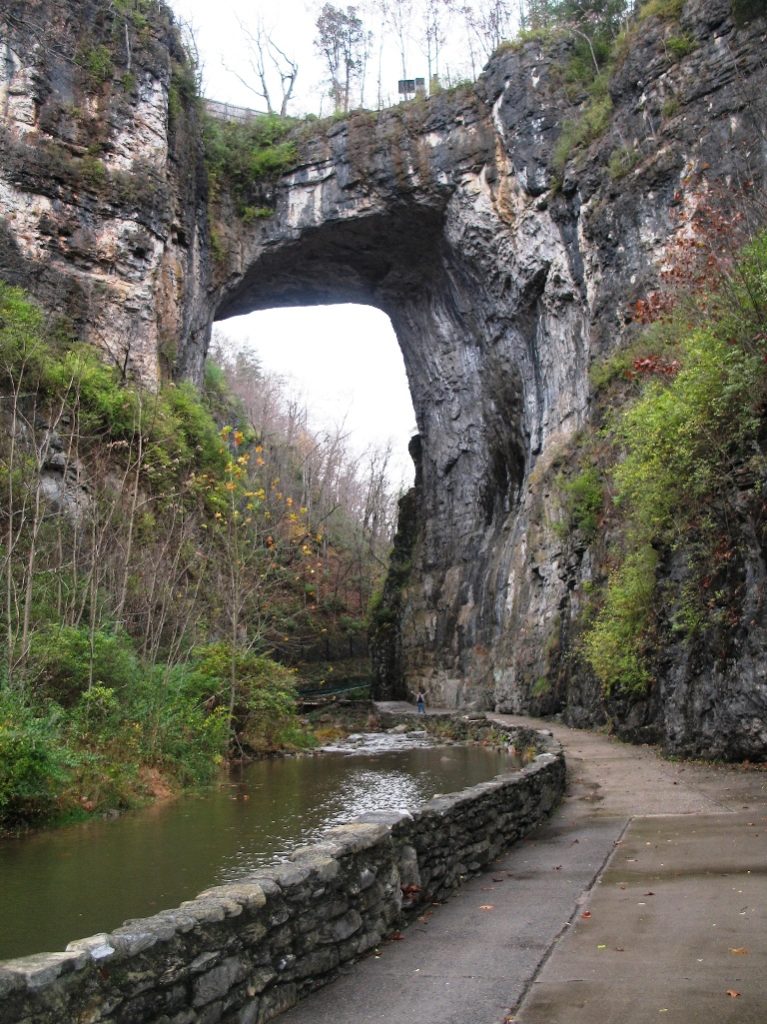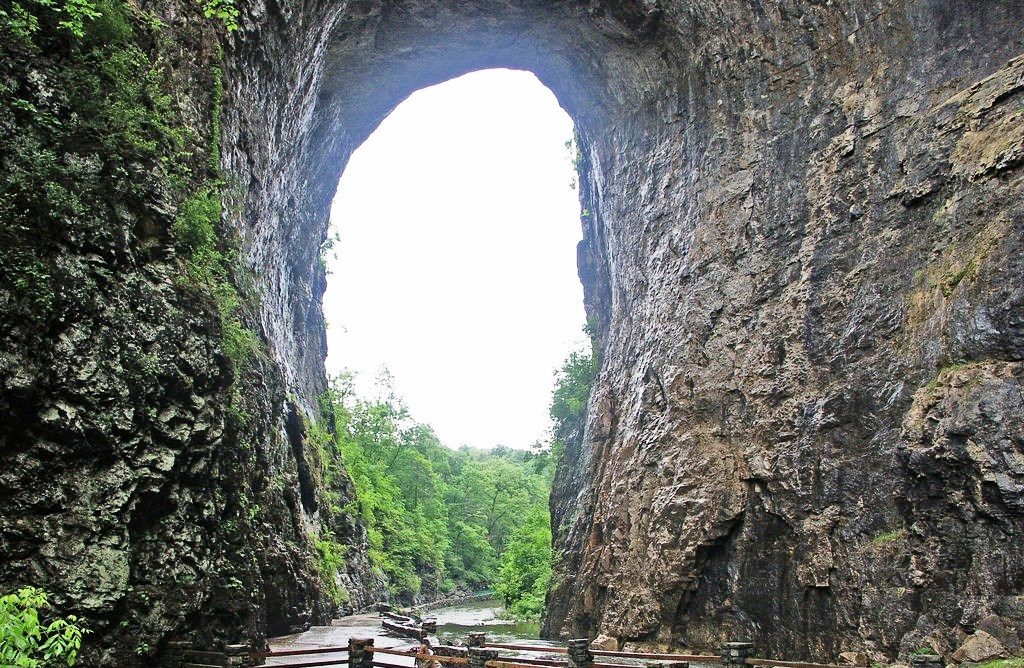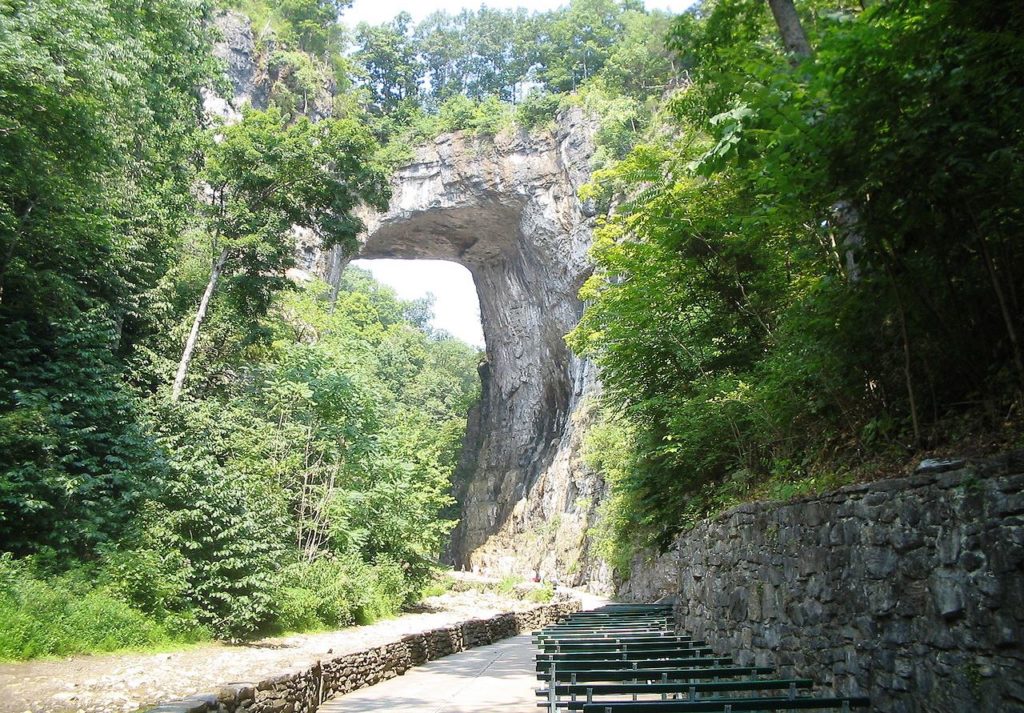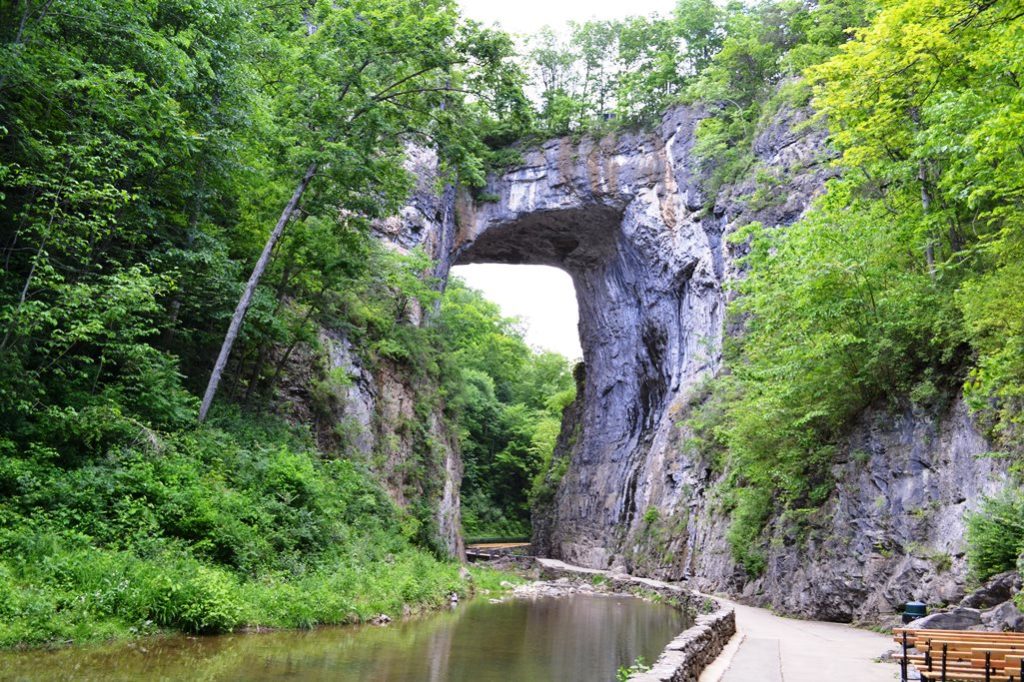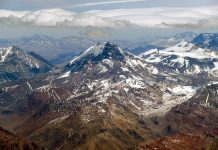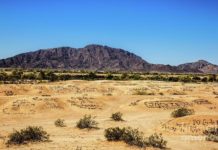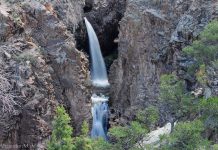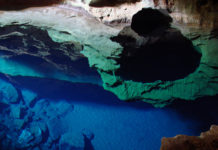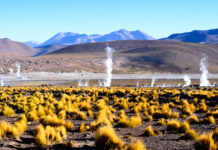Natural Bridge of Virginia has been designated as a Virginia Historic Landmark and a National Historical Landmark, located in the beautiful Shenandoah Valley at the intersection of history, culture, and natural beauty. The Natural Bridge of Virginia is nestled between the Blue Ridge and Alleghany Mountain ranges and surrounded by over 58,000 acres of National Forest, have anything you’re adventurous heart desires.
Natural Bridge of Virginia is 15 miles south of Historic Lexington Virginia, 35 minutes north of Roanoke Virginia, and only 15 miles from the Blue Ridge Parkway milepost 62. The Rocks, limestones, and dolomites indicate deposition approximately 470 million years ago. Although the process of formation of the bridge is not confirmed, the thoughts proposed by different individuals have in common the importance of three elements: the southeast dipping of the strata, the capability of water to slowly dissolve carbonates, and the existence of numerous fractures.
Come see why Natural Bridge of Virginia offers the best tourist attractions in Virginia. The magnitude and beauty of the Natural Bridge compel many visitors to come to the area providing a unique, historic, picturesque, and natural experience. One of our nation’s most iconic natural landscapes is now protected in perpetuity.
Natural Bridge once ranked Niagara Falls as one of the two natural wonders of the New World. The Natural Bridge was eventually eclipsed by the Grand Canyon and Yellowstone’s geysers but remains plentiful of a draw that other attractions have sprouted around it, including a wax museum, a safari park, and Foamhenge, a plastic foam reproduction of Stonehenge.
Although, Natural Bridge was a mountain retreat, drawing countless visitors to capture the nature-sculpted arch that soars high above cedar creek. This is one of among the most visited natural wonders as one of 7 Natural Wonders of the Modern World. It is often cited as having a place among the enormous natural limestone arch.
The arch was created when an ancient cavern collapsed leaving only the largest natural land bridge on the North American continent. Moreover, the other attractions in the area include a wax museum and a living history Monocan Indian Village. The beautiful trail under the bridge also furnishes access to other attractions such as a recreation of Monacan Indian housing, Lace Falls, the “Lost River” and the Saltpeter Cave.
Some researchers believe, the Natural Bridge would be the remnant of an underground river tunnel that diverted water to the south. Moreover, the Natural Bridge was a sacred site of the Native American Monacan tribe, who supposed it to be the site of a major victory over pursuing Powhatans centuries before the arrival of whites in Virginia.
Well, the 215-foot-long bridge was sacred to the Monocan tribe and was revered by the American colonists. The site was surveyed in 1750 by a young George Washington, who allegedly carved his initials into the rock. Thomas Jefferson called Natural Bridge “the most sublime of nature’s works” when he purchased 157 acres of land, including the bridge, from King George III of England in 1774.
Perhaps the oddest parts of this natural wonder are “The Drama of Creation,” a Biblically-themed evening light show that has been projected onto the bridge every night since 1920. The show is the longest continuously running light show in the US. Natural Bridge was one of the major tourist attractions of the new world that Europeans visited during the 18th and 19th centuries. Inviting tourists from all over the world took day trips from Natural Bridge on horseback or horse-drawn carriages to explore the countryside.
Also Read: Aogashima A Volcanic Japan
Source: Atlas Obscura
